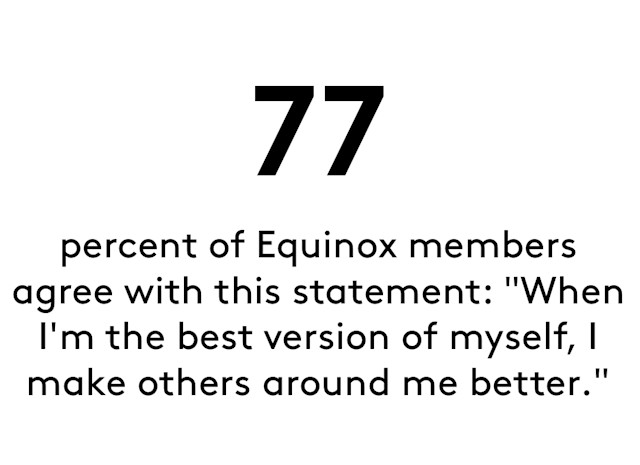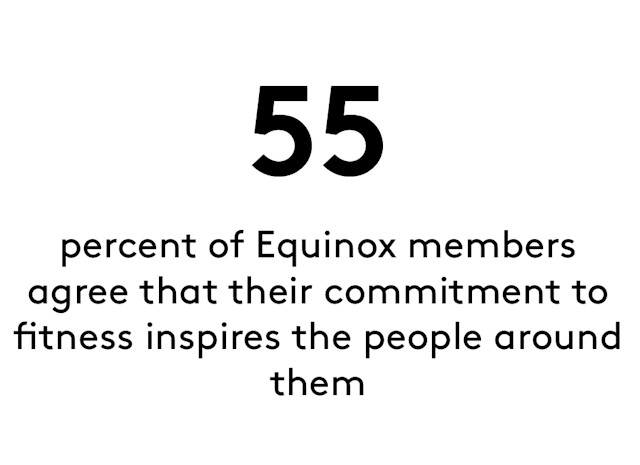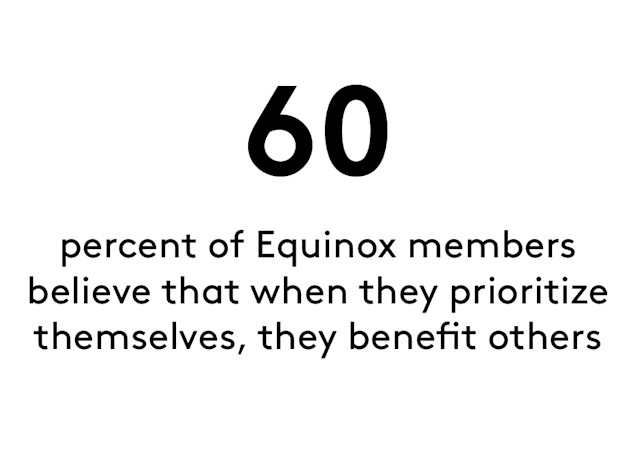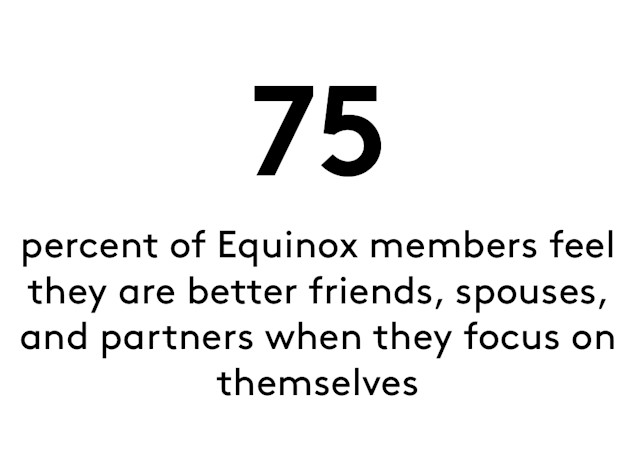People with this trait tend to be happier, tougher, and less stressed.
Self-improvement empowers you to become better for yourself and for others. To achieve it, you need to be a little self-obsessed. In 2020, Equinox is celebrating all the ways this trait can turn you into a gift to the world.
Here, how you can use it to optimize your potential.
The rise of selfies and Instagram has inevitably led to a spike in self-obsession. While it’s often considered a negative trait, it can actually be advantageous in the right contexts.
In fact, a new series of studies show that people who prioritize themselves over all else have lower stress levels and reduced risks of depression. Experts believe the trait may cultivate mental toughness, which builds resiliency, says Kostas Papageorgiou, Ph.D., director of the InteRRaCt Lab at Queen’s University Belfast in England who authored the research.

Here, three benefits of self-obsession and strategic ways to put it to good use.
You’re more likely to get ahead.
The reason: The self-absorbed tend to ooze charm and charisma, helping them emerge as leaders and come across as especially intelligent and creative to strangers, explains Emily Grijalva, an assistant professor of organizational behavior at Washington University in St. Louis. They’re also happy to self-promote—and as societies become more individualistic, that willingness helps them shine in the right situations like job interviews.
How to take advantage: Honor the fine line between self-enhancement and arrogance by asking questions. A 2017 study conducted by Harvard psychologists found that dominating a conversation can decrease how liked you are. Asking others about themselves, however, can increase it. With the latter approach, you appear more understanding and thoughtful.

You’re quick to bounce back from failures.
The reason: With an elevated sense of self, you’ll likely have an easier time repairing your view of yourself after it’s been bruised by ordinary setbacks, like missing a PR you trained hard to achieve, says David Kealy, Ph.D., assistant professor in the department of psychiatry at the University of British Columbia in Vancouver.
How to take advantage: Instead of trying to put up a front every time you fall short on a goal or make a mistake, embrace inevitable dents to your self-image as normal, says Kealy. Discuss a disappointing race result with a friend or write down other factors (outside of yourself) that could have contributed to your loss or failure. This will help you recognize that setbacks don’t threaten who you are as a person.

You go after bigger goals.
The reason: The more positively you think of yourself, the more you think you deserve. Chasing higher standards forces you to face challenges head-on, says Papageorgiou. Adds Kealy: “Imagining that you can achieve great things might be a good source of inspiration and motivation, as long as this is paired with actual ability, persistence, and willingness to collaborate with others.”
How to take advantage: In addition to following a tangible training plan, visualize yourself exceeding your goal—even to an absurd amount. For example, you could picture bench-pressing 50 pounds more than you hope. This kind of inflated yes-I-can self-esteem can improve your chances of success, whatever your goal.
